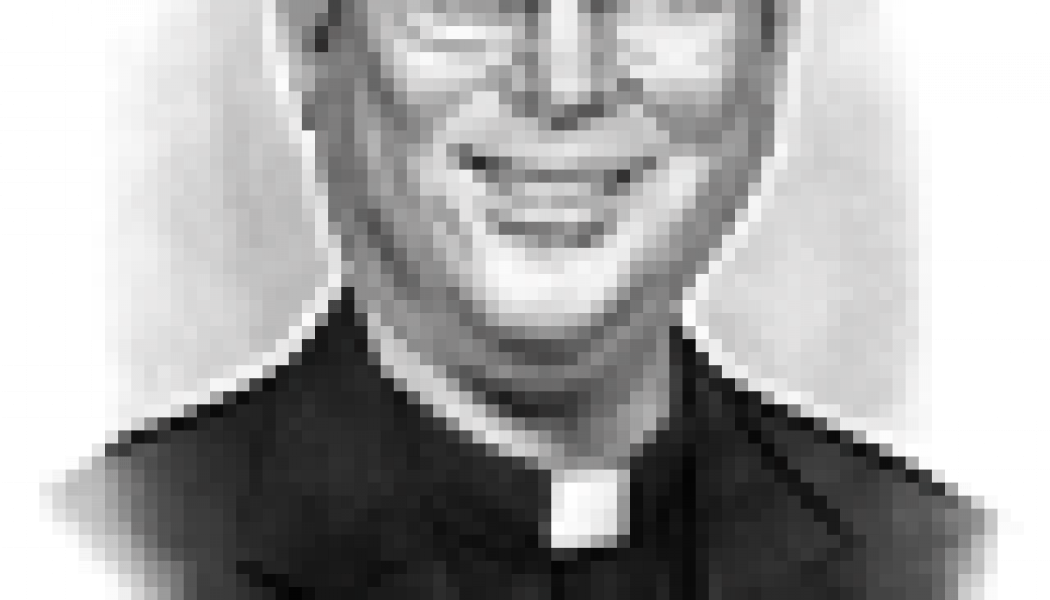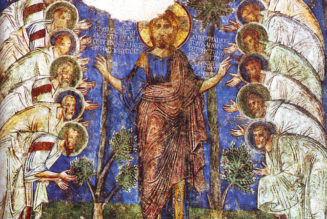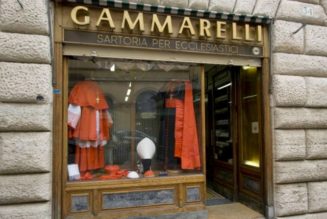By Fr. Jerry Pokorsky ( bio – articles – email ) | May 18, 2020
The cancellation of the public celebration of the Mass in dioceses across the US and the world—beginning in Rome—has established dangerous precedents. In addition to the breathtaking surrender to secular authorities with no public pushback on the part of Catholic bishops, chanceries have introduced the innovation of abbreviated Communion services (with ten or fewer people). The early response by parishioners has been favorable, and in some instances, exuberant. But without vigilance, could the practice become a Trojan horse of confusion and even schism?
Unfortunately, it has become too easy to dismiss the importance of liturgical appearances as long as we retain the essential Real Presence. Hence, bishops and people alike easily tolerate liturgical abuse. Even the most doctrinally orthodox among us can find ourselves sacrificing expressions of beauty and dignity to the bare bones of essential truths.
As a newly ordained priest in the early 1990s, I attended a meeting of priests in the Midwest. At the time, I was a co-founder of CREDO, a society of priests dedicated to the accurate translation of the Sacred Liturgy. The organization’s leaders asked me to give a talk to many mature priests who wore the battle scars of combatting the liturgical and doctrinal chaos that followed Vatican II.
One of the priests told me that his bishop assigned him to “ride the circuit” in his diocese, arriving for the Eucharistic Prayer of the Mass at many parishes and then departing before Communion. The bishop, dealing with a severe priest shortage, had assigned nuns to administer these parishes, and they would “celebrate Mass”—except for the Canon and the Consecration. (One nun even prohibited the priest from greeting “[her] people” after Mass.) Those who received Communion from these scandalous and illicit Masses were nevertheless nourished by the Real Presence. After all, if Masses could not be celebrated, why not come up with innovative alternatives in delivering the Communion essentials? Why make the imperfect the enemy of the perfect?
Some use the same argument today to promote Communion services that replace the public celebration of the Masses. In a recent Religion News article, Father Thomas Reese, S.J., an aged veteran of dissent, jumped on the bandwagon for the expanding Communion services.
Many parishioners who attend a Communion service presided over by a nun refer to it as “sister’s Mass,” to the horror of the bishops. If the nun or layperson preaches and prays more fervently than they are used to from a priest, many parishioners will prefer that “Mass” to Father’s.
Father Reese is not displeased with the trajectory:
On the positive side, the expansion of Communion services will contribute to declericalization of the church. It will also allow parishioners to see how well or badly laypeople can preside at liturgical ceremonies. If married men and women do just as well as the priests, we will see a growing groundswell for ordaining them.
In a prescient February 1994, issue of Homiletic and Pastoral Review, history Professor James Hitchcock penned a piece entitled “How Schism May Come.” He wrote:
The shortage of priests in many dioceses has already led to a practice whereby certain parishes, usually in rural areas or small towns, are served by a “pastoral minister,” and an unsystematic survey suggests that perhaps a majority of those are women, frequently nuns. It seems likely that some bishops welcome the opportunity to give women official pastoral responsibility, as a way of compensating for not being able to ordain them priests.
With his customary trenchant analysis, Hitchcock sketches a likely scenario if left unchecked:
…a process which will occur in almost mathematically predictable stages.
1) The priest who visits the parish once a month is delayed. Rather than delay the distribution of communion, once the stock of consecrated hosts has been exhausted, the pastoral minister herself prays over a ciborium of unconsecrated hosts and; distributes them to the worshippers.
2) Before long it begins to seem unnecessary to almost everyone—the circuit-riding priest, the pastoral minister, and the parishioners themselves—to observe the inconvenient formality of having a priest visit the parish occasionally. Instead the pastoral minister’s distribution of unconsecrated hosts becomes normal.
3) Other parishes hear of this and wonder why they too may not follow the same practice. Unofficially they are told by diocesan officials that they may, although there is no formal announcement to that effect.
4) The practice soon becomes normal in all the priestless parishes of the diocese. Those who insist on having a priest visit in order to consecrate the eucharistic elements are dismissed as rigid legalists.
5) The practice begins to spread even to parishes with resident priests, in the same way that “extraordinary ministers” of the Eucharist function even when priests are sitting in the sanctuary. Pastoral ministers preside at services even in large city parishes, functioning in the same way as their rural counterparts.
Dr. Hitchcock concluded (again, this was in 1994!):
When the existence of this practice finally becomes known, the Holy See will be confronted with a situation of actual schism, of whole dioceses which in effect have cut themselves off from the sacramental life of the Church. At that point the Holy See will also be confronted with a stark dilemma—a situation which cries out for action but at the same time holds grave potential for bitter and divisive conflict.
The response by many bishops to encourage brief Communion services instead of Masses in response to the Covid-19 pandemic may accelerate liturgical practices that have long-term deleterious doctrinal implications on the nature of the priesthood and the Mass.
It is becoming increasingly clear that the hierarchy’s quick surrender to secular authorities and the cancellation of public Masses could have devastating unintended consequences. The bishops must jump-start the public celebration of Masses (using sensible precautionary methods) even at the risk of offending immoral (and quite possibly illegal) government interference in the practice of religion.
Sound Off! CatholicCulture.org supporters weigh in.
All comments are moderated. To lighten our editing burden, only current donors are allowed to Sound Off. If you are a donor, log in to see the comment form; otherwise please support our work, and Sound Off!


 Fr. Jerry Pokorsky is a priest of the Diocese of Arlington who has also served as a financial administrator in the Diocese of Lincoln. Trained in business and accounting, he also holds a Master of Divinity and a Master’s in moral theology. Father Pokorsky co-founded both CREDO and Adoremus, two organizations deeply engaged in authentic liturgical renewal. He writes regularly for a number of Catholic websites and magazines.
Fr. Jerry Pokorsky is a priest of the Diocese of Arlington who has also served as a financial administrator in the Diocese of Lincoln. Trained in business and accounting, he also holds a Master of Divinity and a Master’s in moral theology. Father Pokorsky co-founded both CREDO and Adoremus, two organizations deeply engaged in authentic liturgical renewal. He writes regularly for a number of Catholic websites and magazines. 






